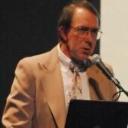Yahoo Answers is shutting down on May 4th, 2021 (Eastern Time) and the Yahoo Answers website is now in read-only mode. There will be no changes to other Yahoo properties or services, or your Yahoo account. You can find more information about the Yahoo Answers shutdown and how to download your data on this help page.
Trending News
Is it possible to be atheist and not believe in Nietzsche's eternal recurrence?
Because when you think of it, if God didn't create the universe, then it must have always existed and always will. Time is looping, as Nietzsche suggested. What can happen, will happen, and not only once but an infinite number of times. Will it then be a new event or simply a new observation of the same one? The latter - he thinks, and so do I.
Interestingly enough, Nietzsche came with that idea more than a century ago. After that, Hubble's discovery of the Big Bang went if favour of the theists: the universe had a beginning. It was even said that the Pope liked the idea. If not exactly according to the Bible, a creation needed a creator and that was good enough for him.
Then the theory of "multiverse" or multiple universes where anything that is possible exists, seems to swing the pendulum the other way. Furthermore, the theory of strings and M-theory seems to make sense of an eternal universe of recurring big bangs.
What are your thoughts?
6 Answers
- The EyeLv 68 years agoFavorite Answer
the looping theory bares merit. Milti-verse theory suggests that the end of the last universe kick started the beginning of ours. very science fiction, i know, but it seems to fit with eternal recurrence. time and space itself might be shaped like a circle, ever repeating.
Atheists aren't supposed to state that no god exists, we're just not satisfied with the ideas presented to us by current faiths. we have no idea whether or not a god exists. nobody does. hey, we might never. doesn't really matter.
- 8 years ago
"Because when you think of it, if God didn't create the universe, then it must have always existed and always will."
Yes, logically it must. If existence is not logical, however, then...
***
"Time is looping, as Nietzsche suggested."
This does not follow; there could be eternal novelty. It only follows if the universe (a.k.a. the whole) is finite. But if the whole is finite, it must be bounded by nothingness, which is unthinkable, as nothingness is unthinkable. Moreover, "bounded by nothingness" means "bounded by nothing", i.e. "not bounded by anything", "unbounded", "infinite". The whole must therefore logically be infinite in every dimension. Infinity, however, is as unthinkable as nothingness. We arrive at an aporia.
***
"What can happen, will happen, and not only once but an infinite number of times. Will it then be a new event or simply a new observation of the same one? The latter - he thinks, and so do I."
Yes, two events that are identical in every way must logically be one and the same event.
- godlessLv 78 years ago
Atheists are just people who don't believe in any gods. We don't have to know all the answers to reject "a magic invisible being did it." However, I've done some research:
Short answer: Modern physics shows how the Big Bang (and thus the universe) grew from nothing but a random quantum vacuum fluctuation, creating the energy and matter as it expanded - with the balancing negative energy in the gravitational field. This doesn't make sense in Newtonian physics or our Newtonian experience, but it does in the physics of quantum mechanics and relativity.
Long answer:.
It used to be that science couldn't answer the question about the origin of the universe or of the Big Bang, but that didn't mean we should make up an answer (such as a god) and say that it was the cause. Within the last few decades scientists have discovered some good answers.
Quantum mechanics shows that "nothing" does not exist. There are always quantized particle fields with random fluctuations. Quantum mechanics also shows that events can occur with no cause.
There are many well-respected physicists, such as Stephen Hawking, Lawrence Krauss, Sean M. Carroll, Victor Stenger, Michio Kaku, Alan Guth, Alex Vilenkin, Robert A.J. Matthews, and Nobel laureate Frank Wilczek, who have created scientific models where the Big Bang and thus the entire universe could arise from nothing but a random quantum vacuum fluctuation in a particle field -- via natural processes.
I know that this doesn't make sense in our Newtonian experience, but it does in the physics of quantum mechanics and relativity. As Nobel laureate physicist Richard Feynman wrote, "The theory of quantum electrodynamics describes nature as absurd from the point of view of common sense. And it agrees fully with experiment. So I hope you can accept nature as she is — absurd."
For more about the Big Bang and its implications, watch the video at the 1st link - "A Universe From Nothing" by theoretical physicist Lawrence Krauss, read an interview with him (at the 2nd link), or get his new book (at the 3rd link). See the 4th link for "The Universe: Big Bang to Now in 10 Easy Steps." And, see the 5th link for "Quantum scientists make something out of nothing."
The Big Bang physically cut off any history of what could be before it, if the concept of before even makes sense without time as a dimension. A current idea being worked on by some cosmologists is that our universe exists as part of a multiverse of many other universes -- perhaps an infinite number of them. Each universe would begin with its own Big Bang. The time-space of each universe is separate from all the others.
"The total energy of the universe is precisely zero, because gravity can have negative energy. The negative energy of gravity balances out the positive energy of matter. Only such a universe can begin from nothing. The laws of physics allow a universe to begin from nothing. You don't need a deity. Quantum fluctuations can produce a universe."
- Lawrence Krauss, physicist
Source(s): http://www.youtube.com/watch?v=-EilZ4VY5Vs http://www.samharris.org/blog/item/everything-and-... http://www.amazon.com/Universe-Nothing-There-Somet... http://www.space.com/13320-big-bang-universe-10-st... http://tinyurl.com/agfvch8 http://tinyurl.com/2zftk http://tinyurl.com/9ww982n - Chances68Lv 78 years ago
Do you really not understand what atheist means?
Your assertion is grossly oversimplified, and patently false. Atheists don't believe there is any god. Science, however, suggest rather convincingly that the universe had a beginning, and is still expanding, although that expansion may be slowing.
Your assumption that if a person doesn't believe in a creator, then they must believe something always was and always will be is ridiculous, and says more about the limits of your understanding that that of atheists.
- SlickterpLv 78 years ago
The BB doesn't require a creator.
Time being infinite doesn't require what happens ot continue to happen.
You can be athiest and not believe in eternal recurrence. I am, and I don't.
- Rockin' RobinLv 78 years ago
Yes. The only thing it takes to be an atheist, is to not have any belief in any gods. That's it. Don't over-analyze it and don't read any more into this than there is.




